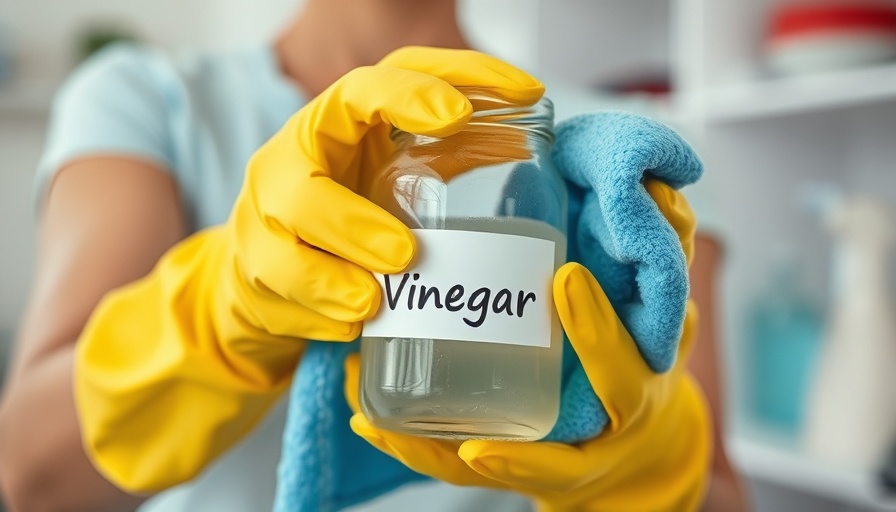
Why Vinegar is a Go-To Cleaner in Home Care
Vinegar, often celebrated for its cleaning prowess, has gained immense popularity as a natural disinfectant and stain remover. Its affordability and non-toxic nature make it a favorite for eco-conscious households. TikTok and other social media platforms are filled with hacks showcasing vinegar's effectiveness across various cleaning tasks—from windows to kitchen surfaces.
Beware of the Hidden Dangers of Vinegar
Despite its natural appeal, vinegar can cause more harm than good when used improperly. For instance, while it’s effective against grime, it can damage valuable items and surfaces. Here are some things to avoid cleaning with vinegar:
- Stone Countertops: The acid in vinegar can etch and dull surfaces like granite and marble. Experts recommend using mild soap and a pH-neutral cleaner instead.
- Raw Egg Spills: Vinegar causes raw eggs to coagulate, turning a mess into a sticky nightmare. Instead, use dish soap and water for this sort of spill.
- Electronic Screens: Cleaning your phone or TV with vinegar can degrade protective coatings, causing cloudiness and streaking. Use a microfiber cloth with distilled water instead.
- Stainless Steel Appliances: Repeated vinegar use can dull stainless steel finishes. A simple solution of soap and warm water is usually effective.
- Dishwashers: Frequent vinegar use can weaken rubber seals, leading to leaks. It’s best to use manufacturer-recommended cleaners or baking soda.
Dealing with Common Misconceptions about Vinegar
A key misconception is that all natural products are inherently safe for all surfaces. This is not the case for vinegar, which, while benign on many materials, can wreak havoc on others. Many believe that because it’s natural, it’s gentle, but as experts like Alicia Sokolowski of AspenClean emphasize, that’s misleading; the acidity can strip protective finishes over time.
Practical Cleaning Insights for a Healthier Home
To protect your belongings, it’s essential to understand what to avoid when cleaning with vinegar. Always opt for cleaning products designed for specific materials to maintain their integrity. Investing in a pH-neutral cleaner for stone surfaces, screen-safe cleaning agents, and natural alternatives for tougher stains can prevent costly repairs and replacements.
Embracing Alternatives to Vinegar
With the knowledge that vinegar can damage certain items, it's important to explore safer cleaning alternatives. For instance, baking soda is a fantastic abrasive cleaner that’s gentle on surfaces and effective in removing odors. Other natural options, such as lemon juice or tea tree oil, can also provide a cleanse without the risks associated with vinegar.
Making Smart Choices for Your Cleaning Routine
As you continue to embrace a cleaner, more sustainable lifestyle, equip yourself with the right knowledge. By understanding the potential risks of popular cleaning agents like vinegar, you can foster a home that’s not only clean but also well-maintained. Changing how you approach cleaning could save you from mishaps and extend the lifespan of your beloved items.
 Add Row
Add Row  Add Element
Add Element 


 Add Row
Add Row  Add
Add 

Write A Comment